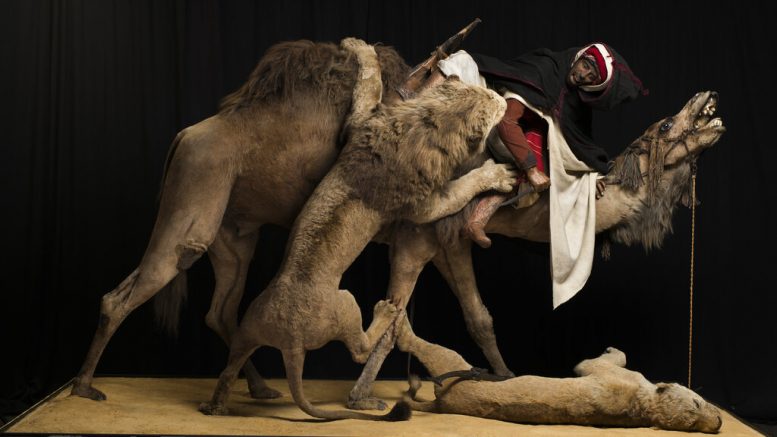PITTSBURGH (AP) — A Pittsburgh museum decided a dramatic diorama that has been on display for more than a century should remain out of public view while it considers ethical issues about its accuracy and appropriateness.
The Carnegie Museum of Natural History has covered up the popular “Lion Attacking a Dromedary” diorama, the Pittsburgh Tribune-Review reported Thursday.
The museum’s interim director says the scene, which vividly depicts a lion attacking a camel and the man riding it, has disturbed some because it depicts violence against a man described as an Arab courier. The subject’s costume has been determined to be “derived from” at least five separate North African cultures.
The director, Stephen Tonsor, also says recent X-rays showed that the 1860s-era taxidermy was performed with real human bones from an unknown person. Tonsor says the museum’s ethics policy requires that any human remains respect the person’s cultural traditions and be done with permission “of the people whose remains are displayed.”
The museum has no other dioramas that include humans, Tonsor said, “and certainly no white European humans being attacked by animals.” He notes it also depicts a male lion hunting, though it much more common for female lions do the hunting.
The work by French naturalist and taxidermist Edouard Verreaux and his brother, Jules Verreaux, was made for the Paris Exposition of 1867 and has been at the Pittsburgh museum since 1899.
Museum officials are considering whether to display the diorama in a way that makes it available for viewing but also easy to avoid for those who don’t want to see it.



































